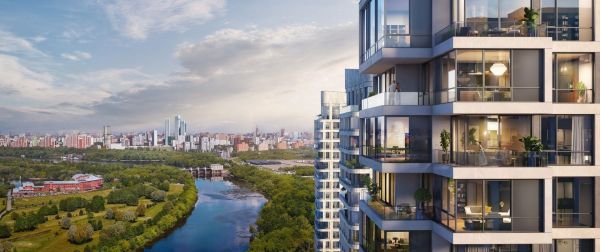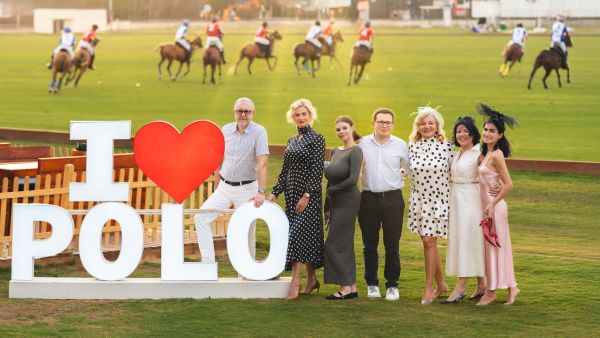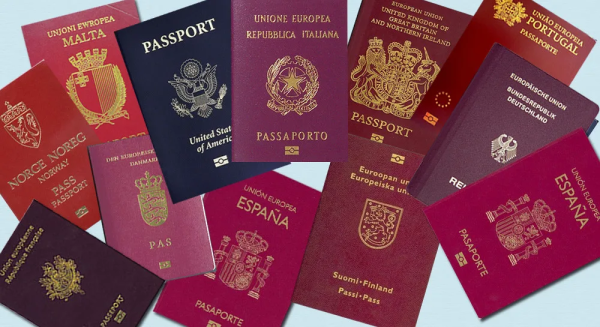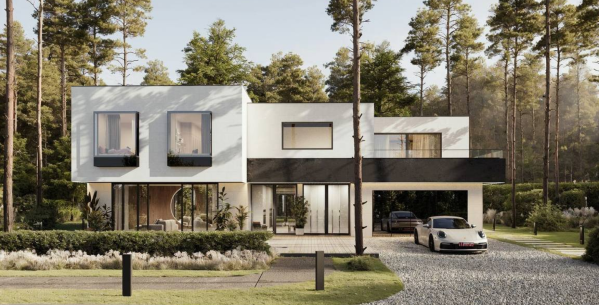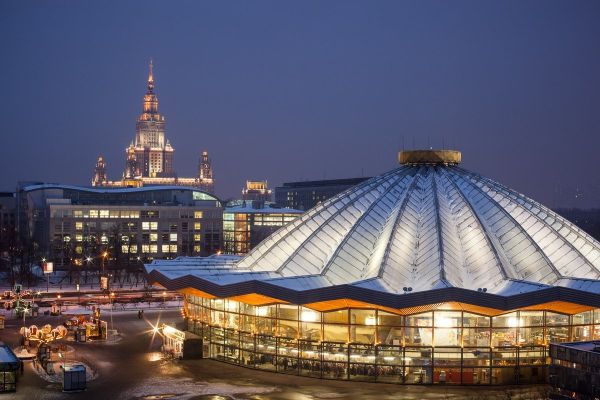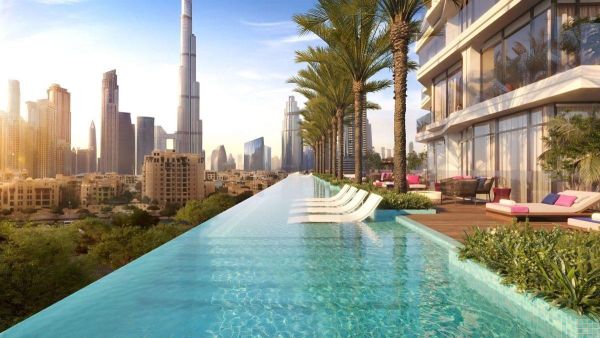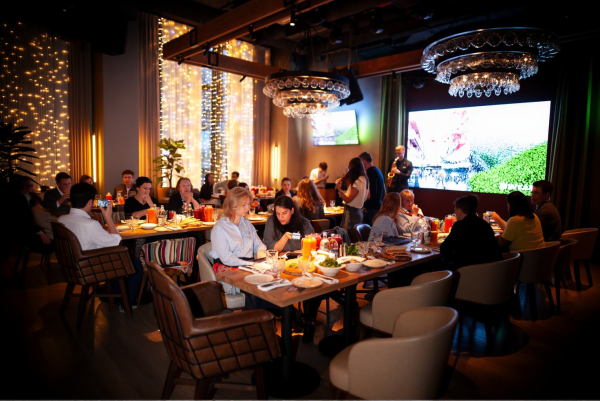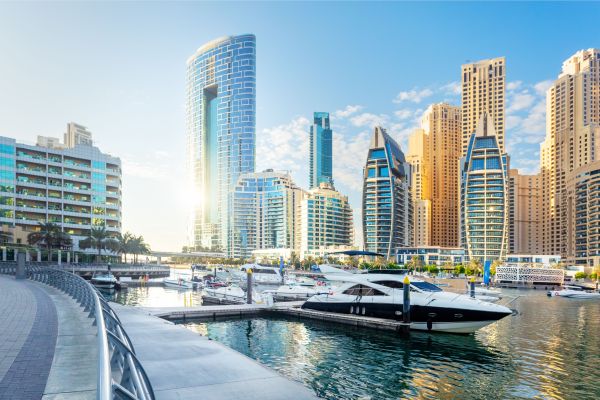Renting luxury apartments in Moscow: demand on the market has been fueled by relocations.
In 2016, realtors working in the luxury rental market in Moscow were pleased: demand increased significantly. However, this does not mean that the number of affluent tenants in Moscow sharply increased last year. Instead, tenants are simply searching for new, more attractive options, particularly in terms of price.
Demand vs Supply
2016 was quite successful for real estate companies involved in renting expensive apartments in Moscow. Point Estate reported a 54% increase in rental applications compared to 2015, and a 22% increase in deals. Kalinka Group revealed a more than twofold increase in demand. Savills received 21% more inquiries from potential tenants in 2016 compared to 2015.
However, this dynamic does not mean that the number of affluent tenants in Moscow sharply increased last year.
"The high growth in demand in 2016 is driven by the revision of contracts and market participants seeking new, more attractive options," says Irina Kalinina, managing partner of Point Estate. As a result, there has been an increase in the number of relocations: due to the practice of changing apartments and tenant movement within the market in search of more favorable offers.
According to Julia Kovaleva, director of the rental department at Kalinka Group, the demand throughout the year was fluctuating. She notes that August was unusually busy, while the traditionally high season - the beginning of autumn - was surprisingly calm in 2016. "In our opinion, potential tenants rushed in the summer to find quality apartments at a reasonable cost, in order to avoid the bustling period and solve their housing issue in advance, as the selection of quality offers becomes increasingly limited with the approach of autumn and the start of the business season," says Kovaleva. "Winter, overall, was active, with deals closing right up until December 31st."
Experts differ in their assessment of the supply dynamics. According to Point Estate, this indicator increased by 18% in 2016, due to both completely new offers and properties re-entering the market. The supply grew most actively in the first and fourth quarters: +15% and +5% per quarter, respectively, according to Irina Kalinina.
Dynamics of supply volume in the luxury rental market of Moscow in 2015-2016

Source: Point Estate
Kalinka Group estimates the increase in the number of luxury apartments being rented at 15% compared to the end of 2015. However, according to Julia Kovaleva, a significant portion of this volume consists of non-liquid properties with inflated prices. "The market is experiencing a shortage of high-quality, high-budget apartments, and the supply is lagging behind the existing demand by 20-30%," says the expert.
According to Savills, the number of luxury properties being rented out has decreased by 15% since the beginning of the year, "indicating their liquidity."
Dynamics of supply volume in the luxury rental market of Moscow in 2016

Source: Savills
Blackwood does not provide data for the entire year but notes that due to tenant activity in the fall, during the peak business season, the supply volume decreased by 10-15% compared to the beginning of the year. Despite this, in 2016, as in 2015, supply was two to three times higher than current demand.
Maria Zhukova, director of "MIEL-Rental," also points out that there are more vacant luxury apartments than tenants. There is nothing strange about this situation: the supply of luxury rental housing has almost doubled over the past three years. "This primarily was due to a sharp decline in demand on the luxury market due to the departure of a significant number of expatriates and the shift in demand for Russian tenants from luxury housing to business-class apartments. Accordingly, there has been an increase in vacant supply in the market," says Alexander Shibaev, director of consulting, analytics, and research at Blackwood.
Exposure Period
The imbalance between demand and supply has led to a several-fold increase in the exposure period of luxury apartments compared to 2014. Prior to the introduction of sanctions, the most liquid apartments remained on the market for no more than two to four days, but now it can take two to four weeks to find tenants for such properties, notes Alexander Shibaev.
Julia Kovaleva emphasizes the market stratification. According to her, the average exposure period for high-premium housing is two months, but due to the shortage of quality supply observed since spring 2016, most good properties at a reasonable price are rented out after the first showing. According to her, there is a queue of potential tenants for such apartments, and the final rental rate can be 10-15% higher than the one indicated by the owner.
"One of our clients was in 'passive search' last year - casually looking for a suitable option," Kovaleva recounts. "He received attractive offers from owners of the apartments he viewed, including discounts and special rental conditions. One year passed, his contract ended, and
Rates
As the number of people looking to rent expensive housing in Moscow is still significantly smaller than the number of available apartments, rents continue to decline. In any case, in rubles - in this currency, according to Point Estate, rates were set for 87% of the apartments on the market in 2016.
According to the calculations of the company's specialists, the average budget for luxury apartment rentals by the end of 2016 was 367,000 rubles per month - 11% less than in the fourth quarter of 2015. Savills reports a 4% decline for 2016, with rates falling to 314,400 rubles per month.
Rates dynamics for apartment rentals in Moscow

Source: Point Estate
According to information from INCOM Real Estate, rates for premium-class apartments - the ones listed in ads - fell by 3-6.5% in 2016, depending on the number of rooms, while in the business-class segment, price decreases did not exceed 4%.
According to Kalinka Group, the average budget for luxury rentals decreased by 5.5% in 2016, from 343,100 rubles to 324,300 rubles per month.
"The decline in average prices throughout the year is due to the emergence of new, cheaper offerings on the market, as well as active price adjustments for illiquid apartments, leading to lower rates," explains Irina Kalinina.
Only Blackwood (among those surveyed by IRN.RU) reported a slight increase in ruble rates for luxury rentals. According to their data, by the end of the year, the average monthly rent for luxury apartments in Moscow was 450,000 rubles, which is 2% higher than the previous year. Rental rates increased by 14% in terms of dollars (likely due to the strengthening of the ruble).
Median level of requested rent for luxury apartments, $/month

Source: Blackwood
At the same time, according to the company's information, the gap between the average requested and offered rental rates significantly decreased during the year. If at the beginning of 2016, landlords on average requested 50% higher rental rates compared to tenants' average requests, by the end of the year, this difference had decreased to 15%, notes Alexander Shibaev.
The average budget requested by tenants also decreased by approximately 15% compared to 2015, reaching around 240,000 rubles per month per property, according to a report by Savills. However, in December 2016, the demand budget reached 270,000 rubles per month, one of the highest figures of the year.
According to Shibaev, apartments with one and two bedrooms were the most popular last year, and overall, the sizes of requested apartments decreased throughout the year.
Savills also provides similar statistics: two-thirds of all requests were for apartments of this size. Studios and three-bedroom apartments received 10% and 18% of the interest from tenants in 2016, respectively, and multi-room apartments accounted for 7% of the demand.
Forecasts
As in the mass market segment, real estate agents do not expect significant changes in the high-end rental market in the near future.
"The trends of 2016 will continue in 2017. The main factors influencing the conclusion of a deal will still be a more favorable price and the willingness of landlords to offer discounts. A significant portion of fulfilled demand will come from relocations. There are no expectations of significant changes in budgets, as the luxury rental market has reached equilibrium," says Irina Kalinina.
According to Alexander Shibaev, the main changes in 2017 will be related to seasonal factors, in particular, a decrease in demand by the end of spring. In the second half of the year, geopolitical changes, such as a relaxation of the sanctions regime and a possible influx of expatriates, could influence the market.
Read also
Stay up to date with the latest news
We promise to send only interesting and important articles.




